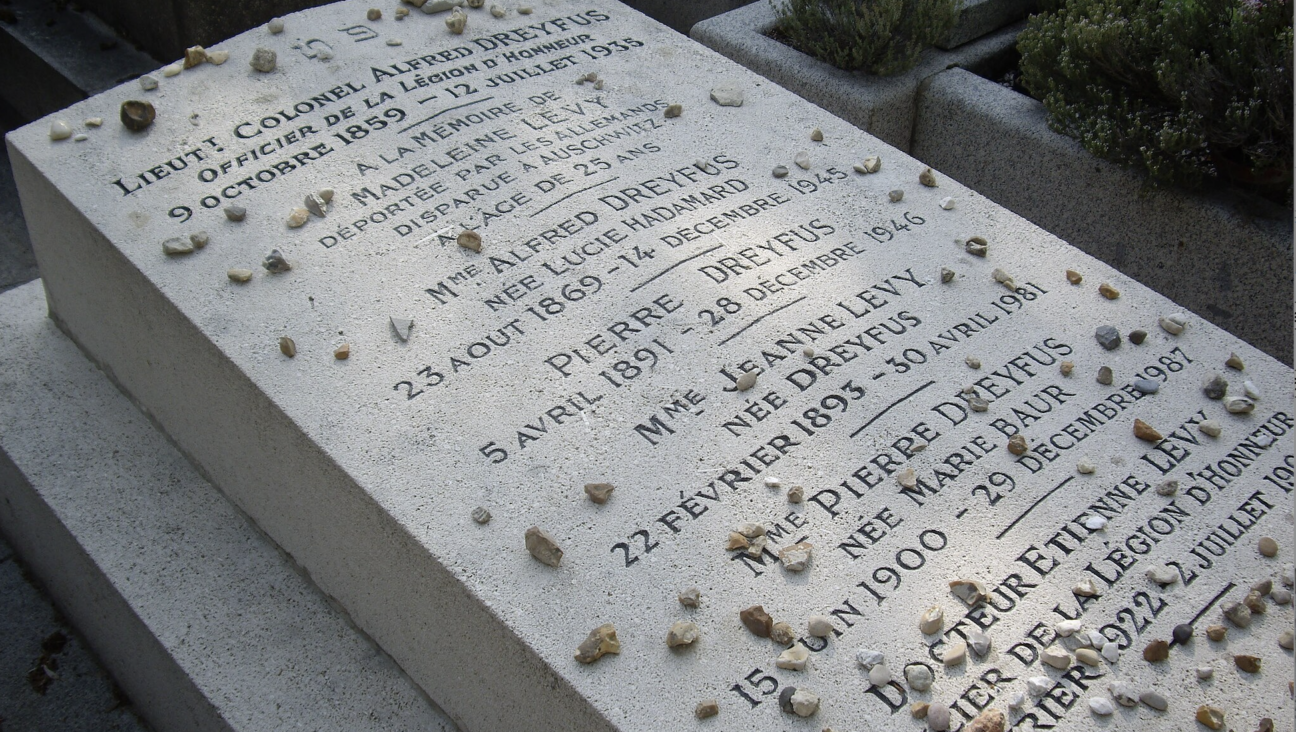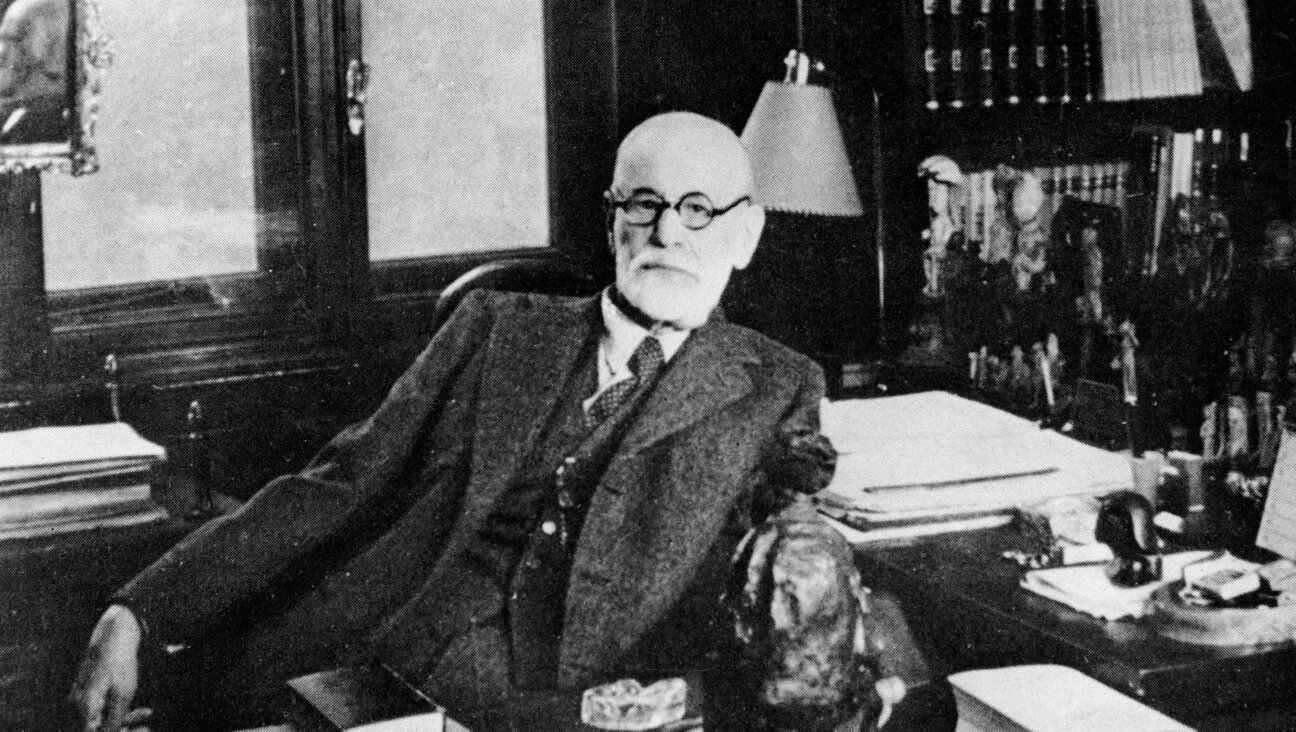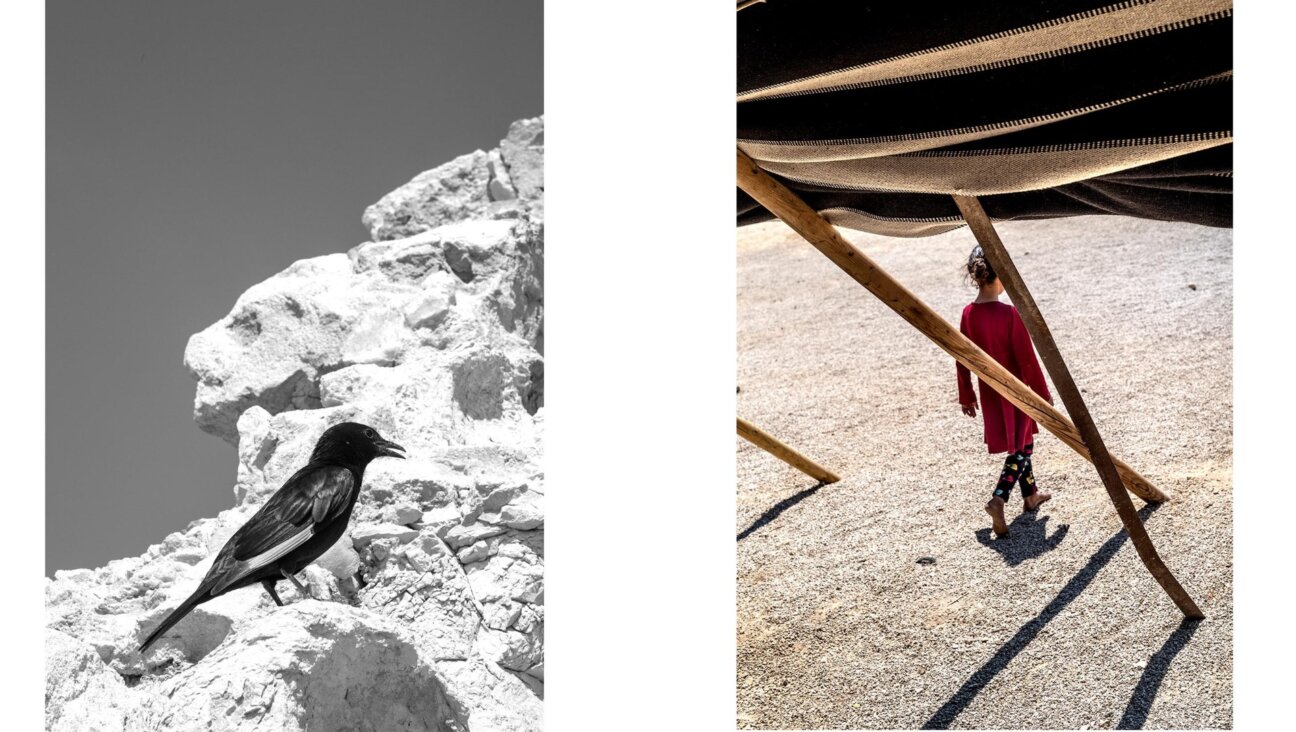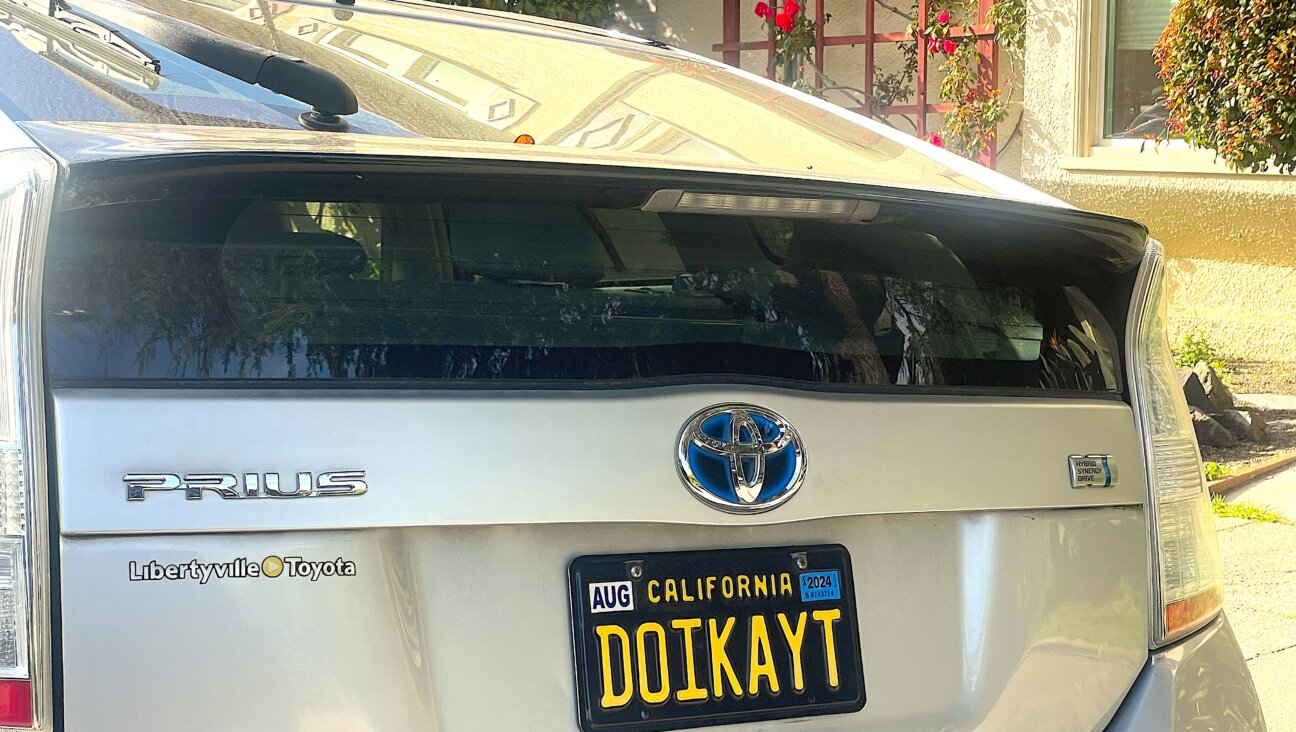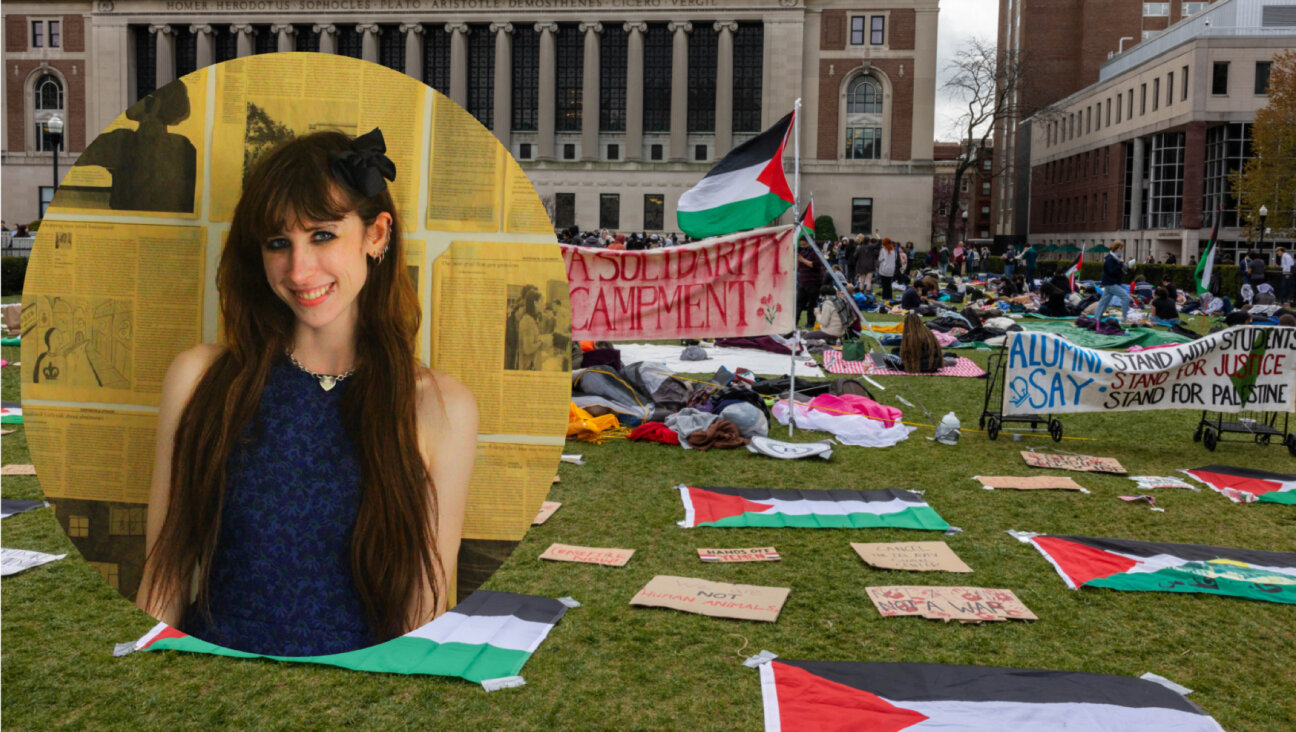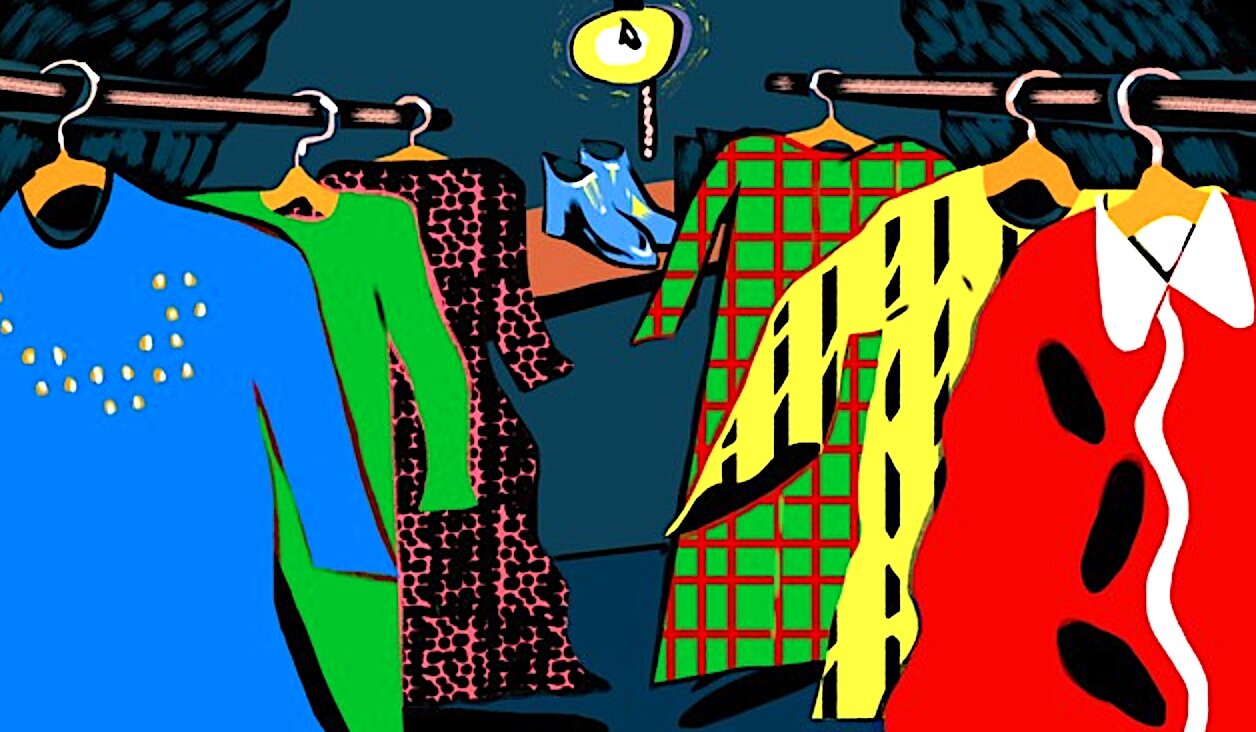In new Israeli Netflix show about fanatical soccer fans, anti-Arab racism is an unspoken companion
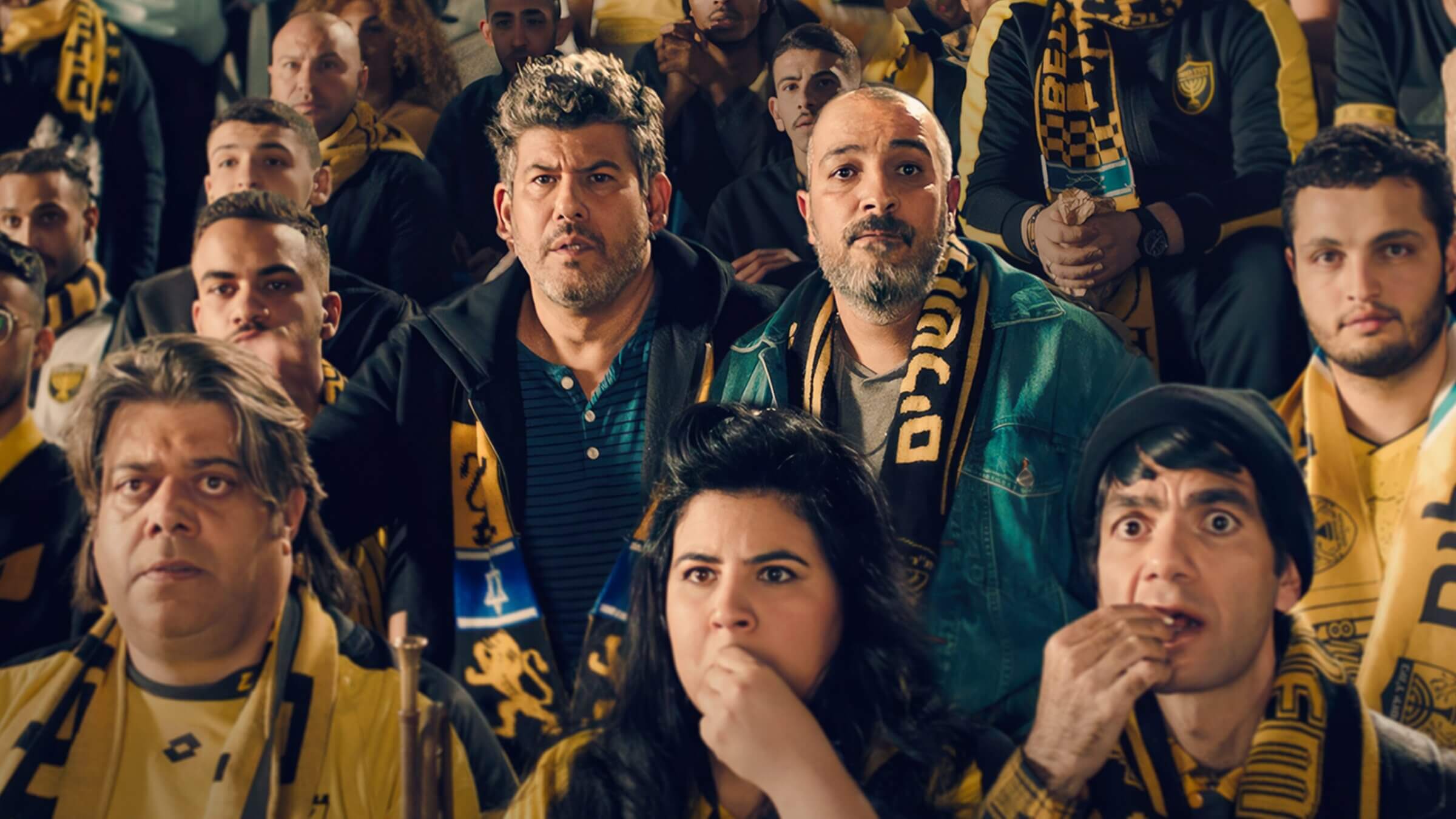
The Beitar fans watching anxiously. Courtesy of Netflix
Israelis have never been portrayed as badly as they are in Bros, a new slapstick buddy comedy on Netflix. Most Israeli media focuses on stories of brave soldiers, clever leadership or exotic religion. But the characters in Bros are thuggish, drunk and idiotic, often picking fights or getting into hijinks caused by their own stupidity. It’s a strange choice for the first Israeli Netflix original, marketed directly to an international audience — in the middle of Israel’s most controversial war in decades.
Israel has long been a TV powerhouse. Hits like Homeland, Euphoria and In Treatment were all originally Israeli shows, remade in English for U.S. audiences. And then there’s the rash of Hebrew-language productions that have become popular abroad thanks to streaming giants that bought up the rights to Fauda, Shtisel, The Beauty Queen of Jerusalem and Blackspace. It’s unsurprising that Netflix decided it was time to skip the middleman.
But Bros, which follows aging best friends Nisso and Pini and their cadre of soccer fans, all devoted to the Jerusalem team Beitar, is a break with the previous shows. It’s about the Joe Schmos of Israelis, not sexy Mossad spies or courageous wartime soldiers.
The show was meant to come out in November, and was delayed because of Oct. 7. But it’s not much easier to embrace it now, when a show about two stupid bros feels rather beside the point, minimizing the actual reality on the ground in Israel and Gaza today. And its jokes are only worse with today’s optics.
“What are you, some Hezbollah militant?” laughs Nisso as Pini shoulders a tube of fireworks like it’s a rocket launcher, aiming them at the windows of the opposing Polish team’s hotel. It’s a gag to disrupt the players’ sleep, but of course, the Poles think the explosions are bombs. “Mom told me not to come here — it’s a war zone,” one says. The whole scene is played for laughs, but it feels a little too real these days — especially when pro-Israel counter protesters are literally launching fireworks into a protest encampment at UCLA.

The show is very Israeli, full of in-jokes and slang — in Hebrew, the show’s name translates to “Through Fire and Through Water,” part of a rhyming chant in support of the team — and it’s based on an event that you’d only know about if you lived in Israel when it happened: the time Beitar went to Poland for the second round qualifiers for the UEFA Champions League. It was a huge deal for the team’s die-hard fan base, known as La Familia, but probably not for anyone else.
That niche premise also means that most of the audience would miss what’s left out of the show: the fact that La Familia is notoriously racist, particularly against Palestinians, and Muslims more generally.
La Familia infamously rioted, burning down the Beitar team office, after the team hired two Chechnyan Muslims to play for the team — not because they were bad players, which would be a normal response from a rabid sports fanbase, but because of their identities. They’ve been known to chant “Death to Arabs” and “Muhammad is a homosexual.” Beitar’s racist fanbase is infamous enough that another Israeli show, Madrasa, has a whole plotline about it.
Bros, however, despite focusing on a group of Beitar fans, never uses the name La Familia. And Beitar does have other fans. Still, since the group is both passionate and tight-knit, and the show emphasizes their familial relationships, it’s hard not to think of La Familia.
The sidestepping of La Familia’s racism feels particularly purposeful given that the show has other plots that reference racism of a different kind. Pini, whose family is from Tunisia, is looked down upon by the Ashkenazi Jews around him — including his wife’s family and his best friend Nisso — even though he is more invested in aspects of Judaism such as keeping kosher.
The show is also very focused on European antisemitism; though the fans arrive excited for how safe and sophisticated they expect Europe to be, the titular bros end up nearly killed by rabid neo-Nazis. Europe, it’s clear, can’t ever leave its sordid history of antisemitism behind.
This is not to say that the show gives a nuanced portrayal of Ashkenazi-Mizrahi racism in Israel, nor antisemitism in Europe; it’s largely concerned with slapstick gaffes like a motorcycle sidecar detaching and careening down a hill with Nisso inside. (Yes, just like that scene in Disney’s The Aristocats.) But it does, at least, acknowledge the existence of those forms of racism. Anti-Arab racism, on the other hand, is not touched upon even obliquely.
Perhaps at another moment in history, no one would have thought too hard about this, and it would be easier to enjoy show’s corny hijinks. But now, it’s impossible to watch a show that is so Israeli, yet betrays not even the slightest shadow of the conflict.
And, at a moment when the world is debating the fundamental nature of Israel as a country — whether it’s a brutish colonialist oppressor or an enlightened democracy — it certainly feels like evidence for the former conclusion to see a group of Israelis so prone to picking fights, committing crimes, lying and generally behaving like thugs.
In another moment, this could be simply a stoner comedy about people who, of course, don’t represent Israel at large. Many sports teams have rabid fans who riot over wins and losses alike, and no one is taking the regular boorishness of Philadelphia sports fans to represent America. But watching Bros, it’s hard not to see its cast as representative of their nation — in its worst aspects.

I hope you appreciated this article. Before you go, I’d like to ask you to please support the Forward’s award-winning, nonprofit journalism during this critical time.
Now more than ever, American Jews need independent news they can trust, with reporting driven by truth, not ideology. We serve you, not any ideological agenda.
At a time when other newsrooms are closing or cutting back, the Forward has removed its paywall and invested additional resources to report on the ground from Israel and around the U.S. on the impact of the war, rising antisemitism and the protests on college campuses.
Readers like you make it all possible. Support our work by becoming a Forward Member and connect with our journalism and your community.
Make a gift of any size and become a Forward member today. You’ll support our mission to tell the American Jewish story fully and fairly.
— Rachel Fishman Feddersen, Publisher and CEO
Join our mission to tell the Jewish story fully and fairly.








